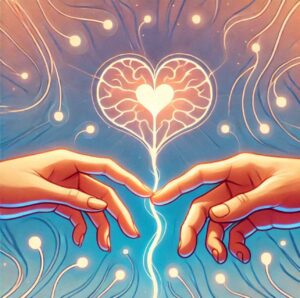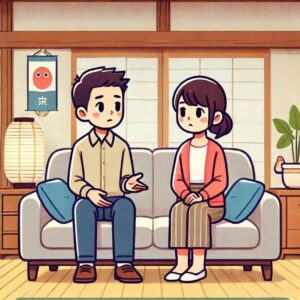Welcome Blessings!
(Tap 🔽 to see more topics!)


Love and romance have been a source of inspiration throughout history, producing countless works of art, literature, and music. However, the sophistication of these emotions often remains a mystery. What drives us to seek passion, connection, and lasting bonds with others?
I’m excited to share an interesting article that takes you on a journey into psychology. Guided by the movie The Ugly Truth, we’ll gain insights into the science, attraction, stages, and challenges of love.

Love, it turns out, is not just a matter of the heart but the brain. Neuroscientists have shown that love involves a complex interplay of brain chemicals and neural pathways. When we fall in love, our brains release a cascade of neurochemicals, including dopamine, oxytocin, and serotonin. These chemicals create the exhilarating feeling of euphoria, intense attraction, and emotional attachment.
In “The Ugly Truth,” the character Mike Chadway humorously dissects the science of love during a TV segment. While exaggerated for comedic effect, Mike’s explanation highlights the role of brain chemistry in love’s initial stages. The film demonstrates that love is not solely a matter of the heart but also a matter of the brain.

Romantic attraction is a fascinating blend of biological, psychological, and social factors. Psychologists have identified several theories that shed light on what draws us to specific individuals:
In “The Ugly Truth,” Abby’s skepticism about Mike’s dating advice gradually transforms into attraction. This transition illustrates the psychological phenomenon known as the “Halo Effect.” Mike’s charm and confidence make him likable, mirroring his physical appearance’s impact on romantic attraction.
Love and romance evolve through different stages, each marked by distinct psychological processes:

3. Attachment. This final stage concerns long-term commitment and emotional bonding. It’s associated with feelings of security and trust fueled by oxytocin and other bonding chemicals.
Abby and Mike’s relationship in the film mirrors the stages of love, from initial conflict to profound connection. Their journey reflects the three steps: lust, attraction, and attachment. Their initial animosity represents lust, driven by physical attraction. Over time, as they get to know each other, they transition into the attraction stage, marked by emotional connection and shared experiences. Finally, the film beautifully illustrates the attachment stage, where Abby and Mike commit to each other, demonstrating that love can evolve and deepen.

While love is beautiful, it’s not always smooth sailing. Relationships may face challenges, and psychology offers insights into addressing them:
“The Ugly Truth” portrays comedic and dramatic moments where Abby and Mike face relationship challenges. Their on-screen journey emphasizes the importance of effective communication, echoing the psychology of conflict resolution. While they take unconventional approaches, the underlying message is clear: open and honest communication is essential in any relationship.
Love and romance are fascinating topics that involve a complex interplay of biology, chemistry, psychology, and social factors. They give us some of our most profound and cherished experiences.
In “The Ugly Truth,” we get a comedic yet insightful perspective on the psychology of love and romance. The movie reminds us that love is a journey that involves emotions, chemistry, and connection. Like Abby and Mike, we all go through different stages of love, each with challenges and mysteries. We laugh, fight, and experience genuine moments that help us understand the psychology of love.

By understanding the psychological bases of love and romance, we can enrich our relationships and better appreciate their complexities. Love is not just a matter of the heart but also of the heart and mind intertwined in the most beautiful dance of human connection.
I hope this article was helpful to you. If you have any questions or comments, feel free to leave them below. Thanks for reading, and I’ll see you at the next one!
References:
Paddock, C. 2020, February 14. What does love do to our brains? Medical News Today. https://www.medicalnewstoday.com/articles/what-does-love-do-to-our-brains
Harvard Medical School. 2015. Love and the brain. https://hms.harvard.edu/news-events/publications-archive/brain/love-brain
Oesch, N., & Miklousic, I. 2012. The dating mind: Evolutionary psychology and the emerging science of human courtship. Evolutionary Psychology, 10(5), 899-909. https://doi.org/10.1177/147470491201000511
Luketic, R. (Director). 2009. The Ugly Truth [Film]. Columbia Pictures.